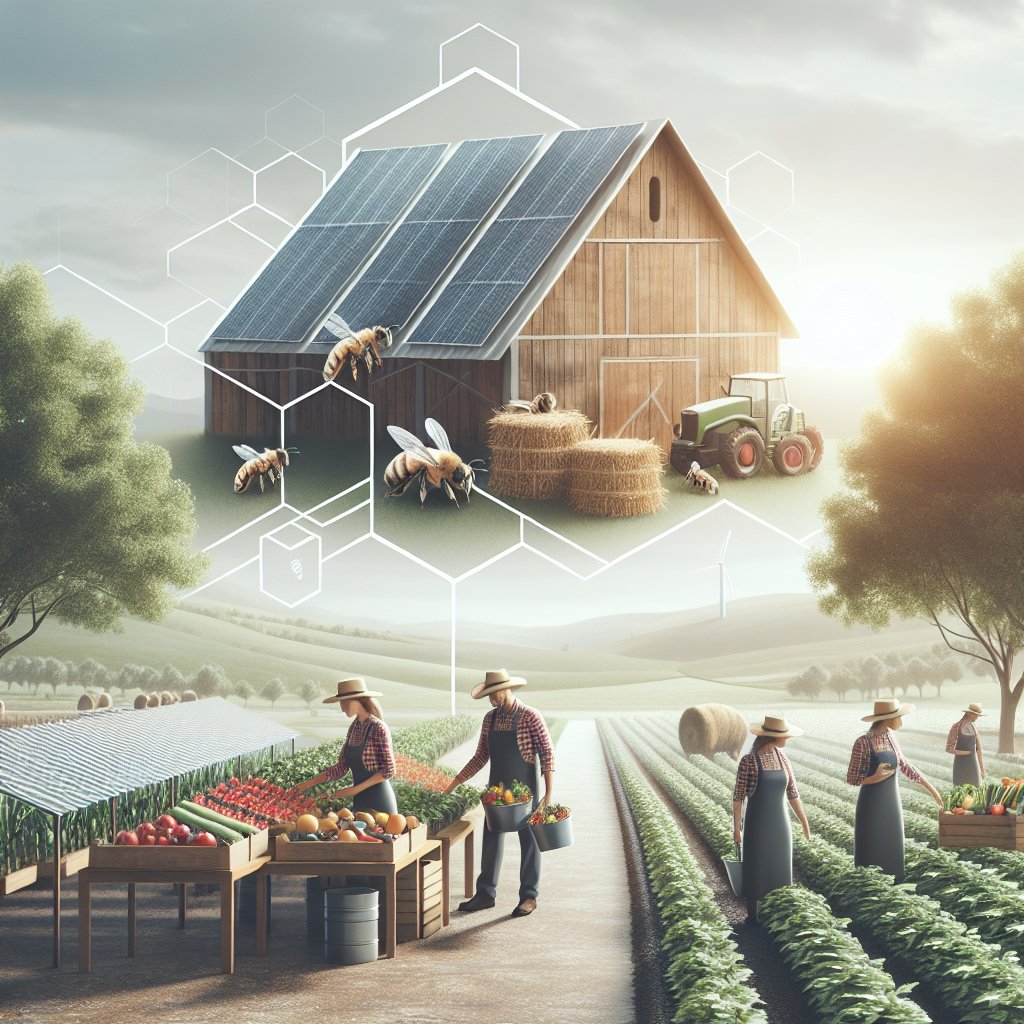The economics of sustainable farming is a critical area of study that examines how agricultural practices can be both environmentally friendly and economically viable. As the global population continues to grow, the demand for food increases, putting pressure on farmers to produce more while also considering the long-term health of the planet. This article explores the principles of sustainable farming, its economic implications, and the challenges and opportunities that arise in this evolving field.
Understanding Sustainable Farming
Sustainable farming refers to agricultural practices that prioritize environmental health, economic profitability, and social equity. It encompasses a variety of methods aimed at reducing the negative impacts of farming on the environment while ensuring that farmers can maintain their livelihoods. Key principles of sustainable farming include:
- Soil Health: Maintaining and improving soil quality through practices such as crop rotation, cover cropping, and reduced tillage.
- Biodiversity: Promoting a diverse range of crops and livestock to enhance ecosystem resilience and reduce pest and disease pressures.
- Water Conservation: Implementing efficient irrigation systems and practices to minimize water usage and protect water quality.
- Integrated Pest Management (IPM): Utilizing biological and cultural controls to manage pests, reducing reliance on chemical pesticides.
- Local Economies: Supporting local food systems and markets to reduce transportation costs and promote community resilience.
These principles not only contribute to environmental sustainability but also have significant economic implications for farmers. By adopting sustainable practices, farmers can reduce input costs, improve crop yields, and enhance their marketability. However, transitioning to sustainable farming can also present challenges, particularly in terms of initial investment and knowledge acquisition.
The Economic Implications of Sustainable Farming
The economic viability of sustainable farming is a complex issue that involves various factors, including market demand, production costs, and government policies. Understanding these factors is essential for farmers considering a shift towards more sustainable practices.
Market Demand and Consumer Preferences
In recent years, there has been a growing consumer demand for sustainably produced food. This trend is driven by increased awareness of environmental issues, health concerns, and a desire to support local economies. As a result, farmers who adopt sustainable practices may find new market opportunities and potentially higher prices for their products.
- Organic Certification: Obtaining organic certification can open up premium markets for farmers, allowing them to sell their products at higher prices.
- Direct-to-Consumer Sales: Farmers can increase their profit margins by selling directly to consumers through farmers’ markets, community-supported agriculture (CSA) programs, and online platforms.
- Value-Added Products: Creating value-added products, such as jams, sauces, or processed foods, can enhance profitability and reduce waste.
Production Costs and Efficiency
While sustainable farming practices can lead to long-term cost savings, the initial transition can be financially challenging. Farmers may face higher upfront costs for organic inputs, equipment, and training. However, many sustainable practices can lead to increased efficiency and reduced reliance on external inputs over time.
- Reduced Input Costs: Practices such as cover cropping and crop rotation can improve soil fertility, reducing the need for synthetic fertilizers.
- Lower Pest Management Costs: Implementing IPM strategies can decrease the reliance on chemical pesticides, leading to lower pest management costs.
- Increased Resilience: Sustainable farming systems can be more resilient to climate change and extreme weather events, potentially reducing losses and stabilizing income.
Government Policies and Support
Government policies play a crucial role in shaping the economic landscape for sustainable farming. Various programs and incentives can support farmers in their transition to sustainable practices, including:
- Subsidies and Grants: Financial assistance for farmers adopting sustainable practices can help offset initial costs.
- Research and Education: Government-funded research and extension services can provide farmers with the knowledge and resources needed to implement sustainable practices effectively.
- Market Access Programs: Initiatives that connect farmers with local markets can enhance their economic viability.
Challenges and Opportunities in Sustainable Farming
Despite the potential benefits, sustainable farming faces several challenges that can hinder its widespread adoption. Understanding these challenges is essential for developing effective strategies to promote sustainable practices.
Barriers to Adoption
Farmers may encounter various barriers when considering a shift to sustainable farming, including:
- Financial Constraints: The initial investment required for sustainable practices can be a significant barrier, particularly for small-scale farmers.
- Lack of Knowledge: Many farmers may lack access to information and training on sustainable practices, making it difficult to implement changes.
- Market Access: Limited access to markets for sustainably produced goods can discourage farmers from transitioning.
Innovative Solutions and Future Directions
Despite these challenges, there are numerous opportunities for innovation and growth in sustainable farming. Some potential solutions include:
- Collaborative Networks: Farmers can benefit from forming cooperatives or networks to share resources, knowledge, and market access.
- Technology Integration: The use of technology, such as precision agriculture and data analytics, can enhance efficiency and sustainability in farming practices.
- Consumer Education: Increasing consumer awareness of the benefits of sustainable farming can drive demand and support for farmers making the transition.
Conclusion
The economics of sustainable farming presents both challenges and opportunities for farmers in today’s agricultural landscape. By understanding the principles of sustainable farming and the economic implications of their practices, farmers can make informed decisions that benefit both their livelihoods and the environment. As consumer demand for sustainably produced food continues to grow, the potential for sustainable farming to thrive is greater than ever. With the right support, knowledge, and innovation, sustainable farming can play a vital role in creating a more resilient and equitable food system for future generations.




